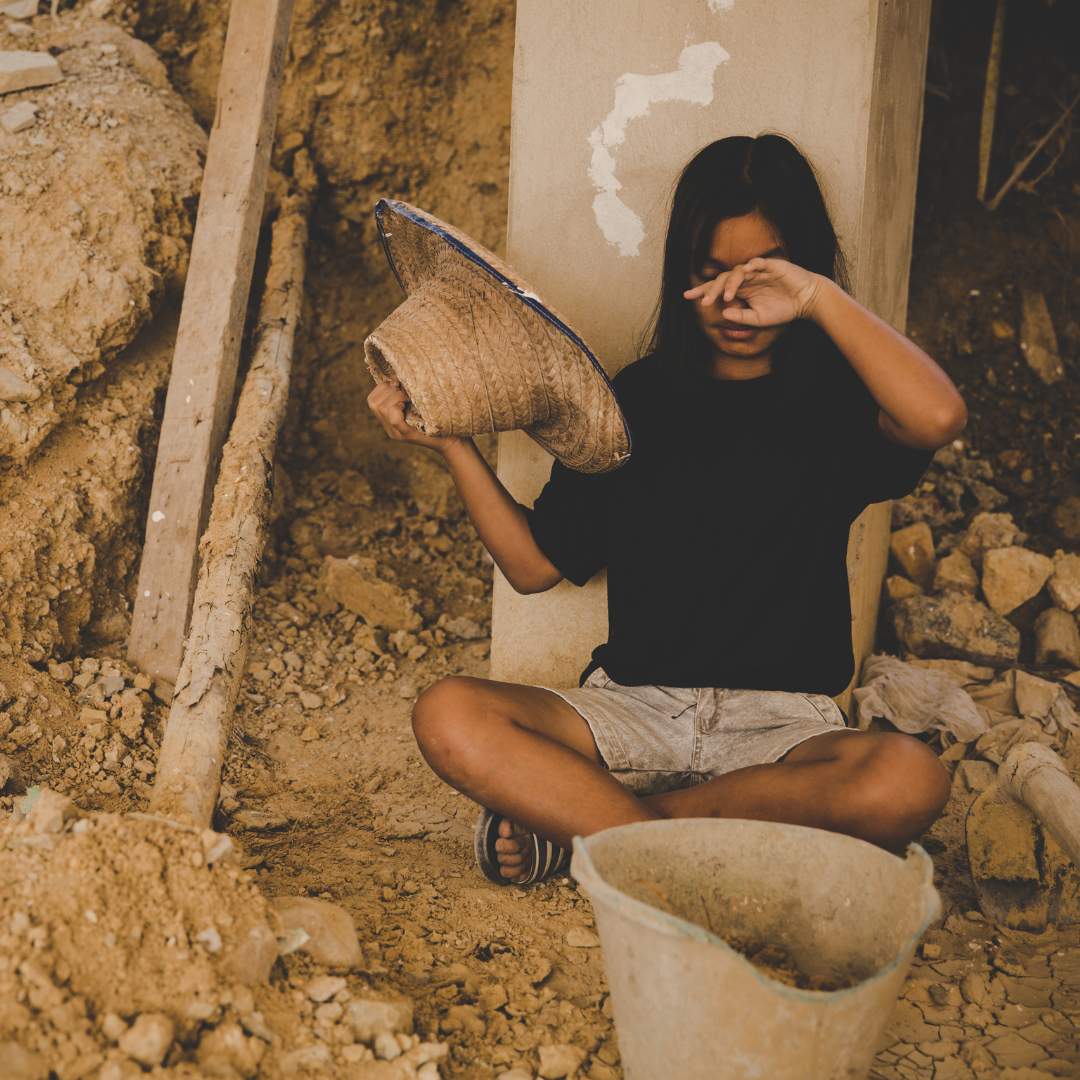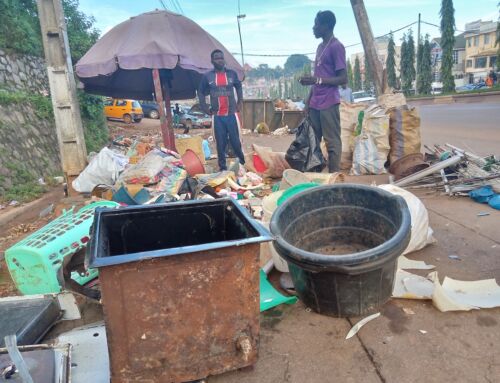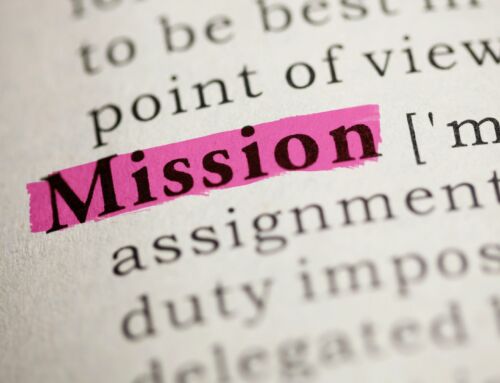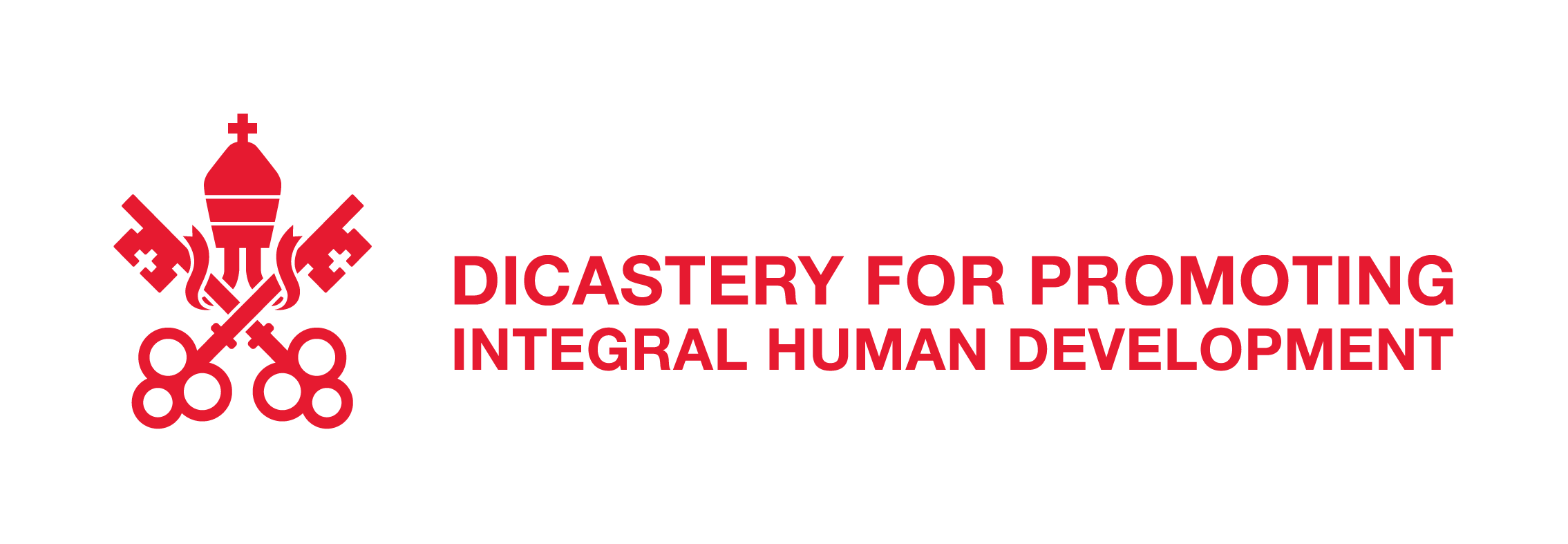
From Child Labor to Child Love
By: Giorgia Nigri
No matter how many times you hear about child labor, exploitation, abuse, you never bring to consciousness how bad it really is and how much you are part of the problem.
‘Do you know where your clothes come from?’; ‘Do you know who extracts the raw materials needed to build your sustainable electric car or smartphone?’ These questions eco in the Sala Etchegaray, at the Dicastery for Promoting Integral Human Development. Everyone is silent. No matter how many times you hear about child labor, exploitation, abuse, you never bring to consciousness how bad it really is and how much you are part of the problem. However, when it looks at you right in the face, you cannot help but make it your mission, your vocation. You can make a difference, and you can start right now.
As one of the two coordinators of the Economy of Francesco Work and Care village, I was invited to listen and participate at the Eradicating Child Labour, Building a Better Future conference organized by the Dicastery on the 19 of November of this past year (2021). One of our village macro-themes focuses on the eradication of child labor, and I was excited to share research and create more advocacy around the topic in every way I thought possible. I looked at the program and realized I was in good company. The Dicastery was able to unite top institutions such as the International Labor Organization (ILO), FAO (Food and Agriculture Organization), the Italian Alliance for Sustainable Development (ASviS), and the United Nations International Children’s Emergency Fund (UNICEF), just to mention a few, bringing insights from different countries and realities (Asia, Africa, Latin America).
I kept asking myself if I was competent enough to sit at that round table, and was preparing for the conference when, at my computer, I received a second email. I had to read it twice, here is an extract: ‘we are very happy that you will be taking part at the International Conference «Eradicating child labour, building a better future«, (…) we would like to invite you to the audience with His Holiness Pope Francis which is scheduled to take place on Friday morning at noon.’ After being part of the Economy of Francesco (EoF) for over 3 years I had always imagined Pope Francis as a superior holy being that watched over us from above but never in my mind did I think I was going to meet him. Not only, I was representing The Economy of Francesco, and was going to get his personal endorsement to make this cause our own. I still get goosebumps when I think about it; the wheel of emotions is so vast that it is almost impossible to put it in words.
To top it all up I did not have a day off as my colleague was on leave. I went to my boss to tell him and he said, ‘what do you want me to say? I am not going to stop you. Say hi to Francesco and pray for us.’ I love how this Pope is so much in everyone’s heart that people can relate to him just as ‘Francesco.’ As he told Professor Bruni himself at the beginning of Pandemic: ‘right now we need Luigino, there is no space for Professor Bruni.’ It is true, in the Economy of Francesco we are all just Giorgia, Andrei, Maria, Paolo, Mateusz, Lourdes- titles and positions are too superficial to confront the wicked problems our generation is facing.
Back to the conference. On one hand, I am sure the first reaction is that a bunch of privileged first-world folks united to speak about data end up not accomplishing anything at all, but on the other, this is the only way to fix a system that is broken. If we do not work as a whole, as a circular entity, we just continuously regenerate a vicious circle with different names like the green economy (not always as green as it looks on paper). As EoF, we use donuts, plant-inspired, green as terms as well but our actions and content speak louder than words. As ‘the global north’ we keep buying and financing a corrupt system, just by buying a t-shirt. As ‘the global south’ they perpetuate low levels of education and recreate the same situation as adults that they were trying to escape as children. In Pope Francis’s words: ‘child labour is not to be confused with the small domestic tasks that children, in their spare time and according to their age, can perform as part of family life, to help parents, siblings, grandparents or other members of the community. These activities are generally beneficial to their development, as they allow them to test their skills and grow in awareness and responsibility. Child labour is something else entirely! It is the exploitation of children in the production processes of the globalised economy for the profit and gain of others. It is the denial of children’s rights to health, education and harmonious growth, including the possibility to play and dream. This is tragic (when he said this in person, he paused and looked straight at us). A child who cannot dream, who cannot play, cannot grow up. It is robbing children of their future and therefore humanity itself. It is a violation of human dignity.’ I cannot help but stress that it affects every one of us as we are the human family. This is our oikos, our common home, which is broken, and like St. Francis of Assisi, we need to go out and repair it.
If we do not work as a whole, as a circular entity, we just continuously regenerate a vicious circle with different names like the green economy (not always as green as it looks on paper).
Once Nasreen Sheikh, from Empowerment Collective in Nepal, and Sr. Catherine Mutindi from RGS in the Democratic Republic of Congo finished their interventions my heart kept getting smaller as my personal level of awareness was rising. Sr. Catherine showed us pictures of children they had saved from mining jobs and were teaching to be children again. In the pictures, they were running around smiling. They were able to forgive and forget because children never lose their integrity and that love foundation, it takes years of dysfunctional adulthood to ‘break’ them. Nasreen, on the other hand, is a fabulous woman in her late 20’s (we think, we are not sure how old she actually is as she was not registered at birth, like many children in that region), who escaped child labour. She has a captivating energy, a light that shines right through, and contagious faith. She struck even Pope Francis and he sees many high-level people. I recommend you read her open letter, which I am only briefly reporting:
‘I was forced to work for a well-known clothing corporation that used loosely regulated factories. In order to keep up with their demands for low cost and fast production, these illegal sweatshops use and abuse undocumented child workers just like me. Six of us lived, worked and slept in a 10 by 10 room without a bathroom or clean water. We were forced to work 7 days a week for 10 to 12 hours a day, getting paid less than $2 a day. My only bed was the large pile of clothes that I’d sewn that day. I hated those clothes, woven with the energy of my suffering. At night, I would collapse on to the bundles of clothes and day dream enviously about where they would end up and who would wear them. If you are reading this and do not know who made them, you might be wearing those clothes right now. In the sweatshops, I saw how chemicals and dyes are illegally discarded into the waterways and drains. I tasted the chemicals in my food and felt them stinging on my skin. I saw the beautiful rivers running throughout Kathmandu poisoned with industrial pollutants, all life extinguished. And there I was, in the vicious cycle of modern slavery. I do not want to shame you. I do not blame you for stealing my childhood or polluting this planet. But it happened.’
I want this to sink in for a second. I do not want to call out on any intentionality, but we have our faults and limits when, as a society, fast fashion, influencers, marketing, and social media mesmerize and charm us. There is nothing wrong in being part of this system as long as it does not define ‘who we are.’ We might want or need something but we need to stop and think before we buy compulsively. We need to stop and think about what is important to us and what we really want. ‘Just ONE action will ripple out into the world with an exponential effect. This effect can challenge many aspects of the existing global trade system.’ Nasreen has a point, we are the consumers in this system and can makes a difference by choosing accurately what and how we consume. Taking unsustainable shortcuts like pre-cooked foods, in foil packaging, heated in microwaves harms both the planet and us as do cheap clothes with toxic coloring we use to be fashionable and change every day. Time is our most precious gift and we need to regain control over it. By slowing down, we can take the right decisions. We are humans and people first, our actions make a difference- what we eat, what we buy, or how we take care of each other.
Nasreen still makes clothes today only that now she has empowered many other women like Alisha Parajuli, who suffers from inequality, I hope one day a man will not feel they are king and they can do anything they want. I don’t want this kind of husband, but where I am, I can’t just divorce him. Every day I just have to let it go. And when I come to work for 7 or 8 hours in LWH, these are the most amazing times I have with my friends. Slowly it is a good way to empower women. We don’t want anything; we just want equality. I just want to say to my husband, if he hits me, I will leave him, and I could do this, but society forces me to accept all of his torture. I hope that one day I will have the power to talk to him, or Sital Parja, who is ‘discarded’ because of her caste, everyone hates us in our village, because I am from an untouchable society. It makes me feel like it was my mistake to be born in an untouchable society. Why is this society so cruel to us? I just want to be one of the independent, happy, and full-of-life women of this world. I just want to say to the world, don’t judge me with my caste, judge with my heart. This empowerment is important because, as Maurizio Martina from FAO mentioned in his second intervention there is a strong relationship between child labor and the condition of women. Child labor occurs where women are exploited- we cannot separate these two aspects.
Some numbers. Research from ILO and UNICEF states that one hundred sixty million children are victims of child labor of which 79 million perform hazardous work (mines, toxic acids, complex machinery, and agriculture). Most importantly, global progress has stalled since 2016 and family work is predominant in all regions. This means that not only do they not get adequate support from the ‘first’ world but also that on top of working these children are a fundamental part of their family income. Often, since their parents work in hazardous conditions themselves and get sick or pass away, young adults and children are left to take care of their entire family. When there is a lack of food and basic needs, there is no time for education, for dreaming, for being a child or young adult. This leaves room for exploitation. In a recent sky reportage, Afghan Diaries, they denounce that girls are sold for 2.000,00 euros to keep the families alive. Best case scenario, they are sold as slaves, worst-case scenario, they are bought for their organs. It is understood that you should know where your clothes are from but most importantly where black-market organs come from. The human price is too high. No family should be put in front of such a choice and no child should have to live with this kind of emotional burden.
The main dramatic cause of child labor and exploitation is poverty and the vulnerable and fragile conditions of families with low incomes and no social protection tied to it. Poverty and inequality have a direct correlation with child labor- a 1 percent increase in poverty can lead to a 0,7 percent increase in child labor. We have seen this correlation rise dramatically with the pandemic. The impact of COVID-19 on the economy and on the income of families together with the school closures have pushed many of the poorest families to engage children in child labor, especially when women are exploited and gender norms and discrimination are in place.
In order to fix things public policies that support social protection nets at a universal systems level are needed. Decent work and attention to human dignity must be applied and monitored. There is a need to adopt adequate legal frameworks and to promote compliance. Everyone should take on more responsibility. Companies and the private sector have the duty to create good jobs and employment conditions, focusing on production in local and regional value chains. Too often price competition between companies leads to a compression of rights and salaries, augmenting social and gender inequality. Governments must put in place legal frameworks that protect child rights, ensure social protection, and regulate the labor sector. Civil society must continue raising awareness at all levels, in particular with consumers to contribute to global action through informed choices. We cannot accept a competition with no rules infringing fundamental rights only to increase profits with end-users in other parts of the world commercially sustaining child labor and the poverty trap developing countries find themselves in. A change in social and cultural norms that perpetuate child labour needs to take place. This requires strong social clauses to guide international trade. Finally, intergovernmental organizations should continue supporting the development of national child labor-sensitive policies and strategies for inclusive development.
The International Year for the Elimination of Child Labour (2021) has just passed us. The year ahead of us represents a unique opportunity for increasing collective efforts to eradicate child labour. We need to strengthen evidence and make child labourers visible, address the issue in conflicts, disasters and other crises, and realize the promise of international cooperation and partnership. There is also much space for a welcoming, fostering, and adoption. Nasreen was able to escape child labor because she was supported by a mentor. Legal tutors are an option, welcoming families to help them integrate is an option, fostering for shorter or longer periods is an option (you can welcome children for a summer). This way we can stop the culture of indifference- by touching and feeling, by not looking away, by painting the twenty-ninth scene.
Pope Francis praised spouses who decide to adopt a child and appealed again to the institutions so that they can support and simplify the process necessary to make the dream of many little ones who need a family comes true: ‘this type of choice is among the highest forms of love.’ I want to close this article with love; the answer to any action or risk we take.

GIORGIA NIGRI
PhD Candidate in Culturà dell’Unità – Department of Humanities & Social Sciences,
PhD in Civil Economy – Department of Economics, LUMSA.















